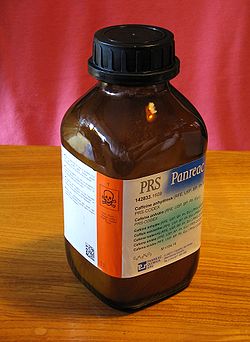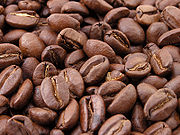
Caffeine occurs naturally in over 60 different types of plants.
The most common sources of caffeine in the Western diet are
coffee, tea, cola, and energy drinks.
Soy Coffee=Low Caffeine
Soy coffee is a coffee made using soy beans and coffee beans.
Soy coffee is ideal for people who would like a healthier alternative
to regular coffee. Soy coffee often has less caffeine than regular coffee.
What are the effects of Caffeine?

There are several short-term effects of caffeine.
Some of the most common short-term effects of drinking caffeine are:
* increased alertness (caffeine is a mild stimulant)
* makes your heart beat faster (caffeine is a mild stimulant)
* makes you go to the toilet more (caffeine is a diuretic)
* raises your body temperature
* makes your digestive system produce more acid.
Caffeine can take 4 to 6 hours for the effects of caffeine to wear off.
How much caffeine is too much?
Moderate caffeine intake is probably not harmful to healthy
adults. However, regular large amounts (over 350mg/day)
may cause dependency, also called caffeinism and adversely
affect health.
Large amounts of cola drinks (34 - 68 fl.oz per day) as well
as daily morning coffee may also lead to excessive caffeine intake.
What are the symptoms of excessive caffeine intake?
Some of the most common symptoms of excessive caffeine intake are:
* chronic insomnia
* persistent anxiety
* depression
* restlessness
* heart palpitations
* upset stomach
* headaches when caffeine is not present
Caffeine content in common Products
Instant coffee-----------146 mg per cup
Cocoa-----------110 mg per cup
Decaffeinated coffee-----------4 mg per cup
Loose tea, 5 minute brew-----------40 mg per cup
